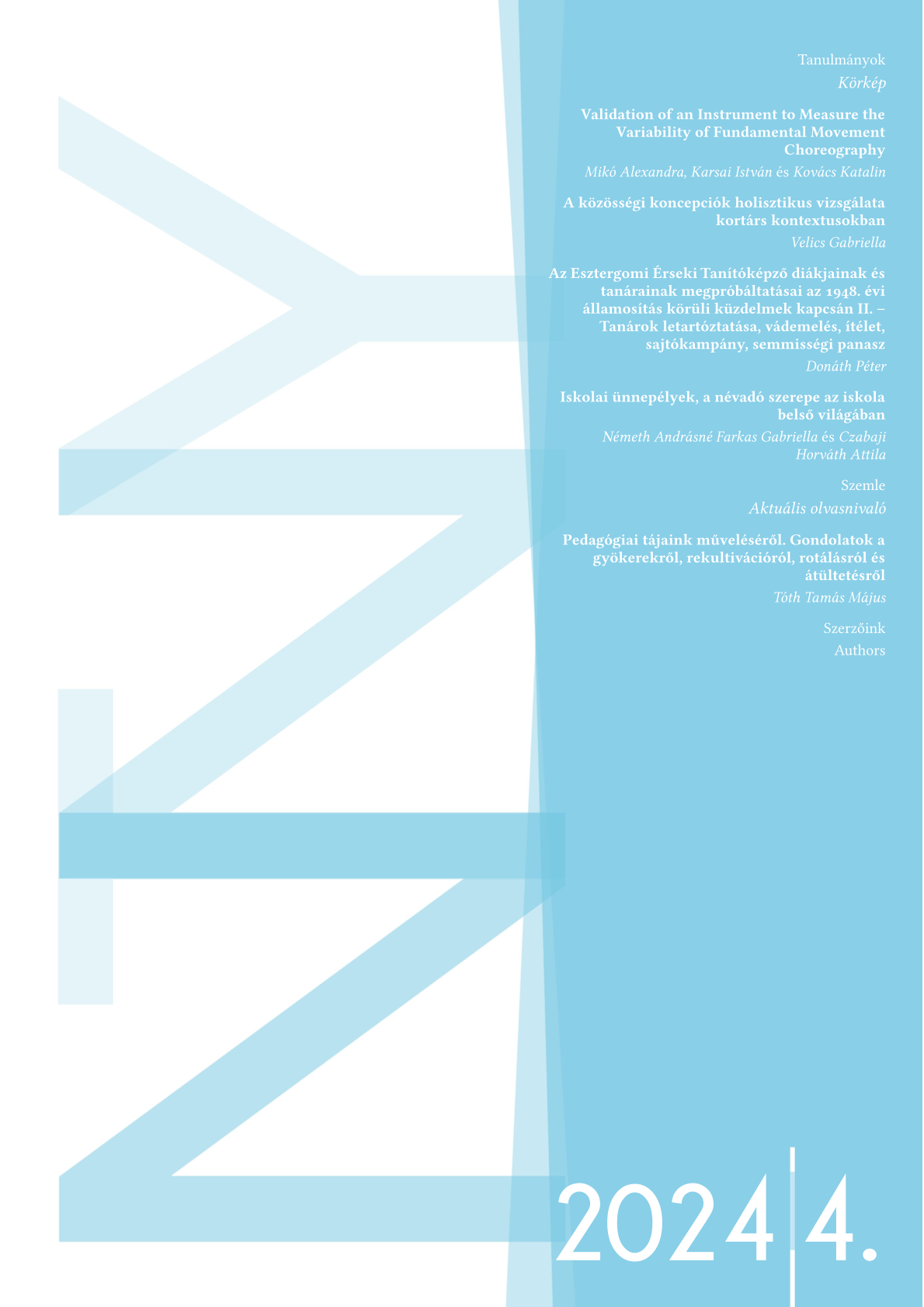Abstract
In June 1948, as part of the struggle with Cardinal Archbishop Mindszenty and the Catholic Church over the nationalisation of schools, the case of the students and teachers of the Esztergom Archbishop Teachers' College became the focus of national attention of the state security services and political propaganda. On 12 June, a company of military academics marched in front of the school building in an intimidating manner. Some students criticised their march with adolescent fervour through the open window and made disparaging remarks about soldiers and the army in the tense atmosphere surrounding nationalisation. They filed a complaint, and on 14 June, the police and military entered the school, searched the premises and detained the students suspected of being involved in the remarks. During their interrogation, they were forced to take responsibility for things they had not said and to blame the Archbishop's training school and their teachers' actual or perceived anti-democratic statements to release them quickly. The second part of the documentary narrative is based on the archives of the contemporary press and contemporary recollections of 17 June 1948 (the interrogation of the three teachers arrested on 17 June 1948, the accusations against the students and teachers, the court proceedings and the propaganda press campaign). It presents the defence lawyer's complaint for annulment of the conspiratorial proceedings. The study concludes with a brief review of the fate of the clergymen sentenced to 4-5 years in prison and the secular teacher sentenced to 1 year 9 months and then interned for years in Recsk, and a reflection on the value of contemporary memoirs as sources, commemorating the drama of the teachers and nine students persecuted for propaganda purposes.
